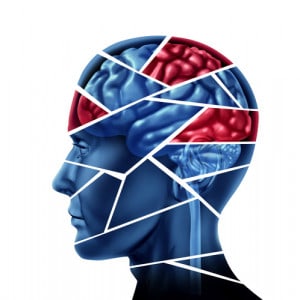Is There a Link between Traumatic Brain Injury & Alzheimer’s Disease?
October 3, 2017
Is There a Link between Traumatic Brain Injury & Alzheimer’s Disease?
Traumatic brain injuries (TBIs) and Alzheimer’s disease (AD) can be marked by similar cognitive impairments, like memory problems, confusion, speech difficulties and disorientation. While these symptoms can dissipate in some TBI patients (versus persist in AD patients), the symptom similarity may not be the only link between these two conditions.
In fact, a growing number of studies are finding that, for some people, a history of TBI may increase the risk of developing AD (and other forms of dementia).
Have You or a Loved One Suffered a TBI?
You can also get answers regarding your recovery options by contacting the Amaro Law Firm for a FREE, no obligations consultation. Call (713) 352-7975, text (281) 612-8024 or email our firm. We also offer free virtual and mobile consultations to those who are unable to visit our offices.
Systemic Review of 32 Studies Examines Link between TBIs & Risk of Alzheimer’s Disease
Looking to better define the “relative effect of head injury on dementia and AD risks,” researchers recently conducted a “systemic review and meta-analysis” of 32 studies on TBIs and AD risks. These studies, published from January 1990 through March 2015, included more than 2 million individuals, as well as nearly 14,000 dementia cases and nearly 8,200 AD patients.
Head Injury as a Risk Factor for Dementia and Alzheimer’s Disease: A Systematic Review and Meta-Analysis of 32 Observational Studies, published in January 2017, summarizes the findings of their analysis.
The Findings: TBIs CAN Increase the Risk of AD & Other Forms of Dementia
According to researchers, this systemic review did reveal that traumatic brain injury can elevate the risk of Alzheimer’s disease (and other dementias) in some patients. Specifically, researchers found that:
- Moderate to severe TBIs are typically associated with a higher risk of AD – While more serious traumatic brain injuries generally elevated the risk of developing Alzheimer’s disease, researchers did not find any evidence of an increased AD risk when TBIs resulted in a loss of consciousness (LOC). This finding is interesting because more severe TBIs are commonly associated with LOC.
- So are multiple milder TBIs – Repeated mild TBIs can also raise the risk of developing dementia, researchers found. This could have important implications for those who play contact sports, as well as others with a significant risk of sustaining mild TBIs (like troops regularly exposed to blasts, etc.).
- Age and genetic factors can impact the risk of AD for TBI patients – Specifically, sustaining a head injury at or after the age of 55 may lead to elevated AD risks. Individuals with a form of the APOE (apolipoprotein E) gene can also have a higher risk of developing Alzheimer’s disease after suffering a TBI (regardless of age).
While these findings seem to indicate a clear link between TBIs and Alzheimer’s disease, researchers did note that suffering TBIs (whether moderate, severe or repeated) does not automatically or necessarily increase the risk of AD and other forms of dementia.
However, researchers did explain that they “observed an overall 63% increase in any dementia risk and 51% increase in AD, comparing individuals with head injury to those without head injury.”
Concluding this study, researchers explained:
On the basis of epidemiologic evidence, we found that head injury was associated with an increased risk of dementia and AD. For further studies, based on our findings, we suggest that the investigators should improve the standardization of various assessment methods of head injury, dementia and AD. Furthermore, this study adds to the existing evidence that head injury may lead to neurodegenerative diseases, and the use of genetic and biological makers as surrogate end points in the future studies should help to clarify the case (sic) and effect relationship that links head injury and dementia and AD.
Find Out More about Your Potential Claim: Contact a Houston Brain Injury Lawyer at the Amaro Law Firm
If you or a loved one has suffered a TBI, you can turn to a Houston brain injury lawyer at the Amaro Law Firm for experienced help pursuing compensation and justice.
Call (713) 352-7975, text (281) 612-8024 or email our firm for a FREE consultation and helpful legal advice regarding your potential claim.
Tireless and tenacious, our experienced lawyers are ready to advocate your rights and bring your claim to the best possible outcome.
Testimonials from our former clients speak to our exceptional service and outstanding record of success in TBI cases, which have earned us 5-star ratings on Google and Facebook.
